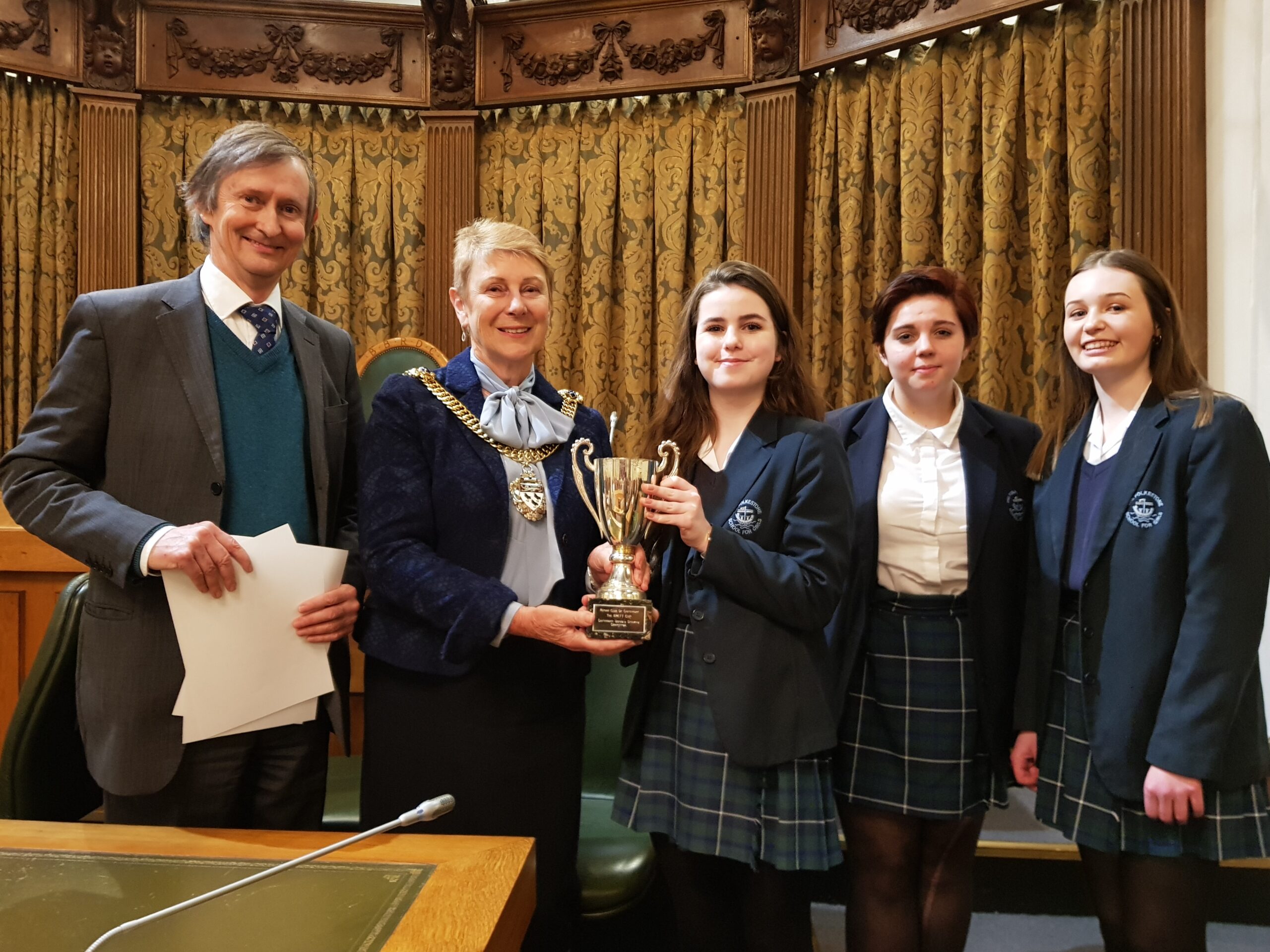
Increasingly, young people are being encouraged to speak out and get involved in issues that affect them. What better way to learn how to do this than through public speaking?
In association with the Rotary Club of Canterbury, the English Speaking Union (ESU) held the annual East Kent Final of its schools Public Speaking Competition at Canterbury’s historic Guildhall on Thursday 2 February.
It was encouraging to hear the opinionated youngsters using their voice on topics that they care about, with the Guildhall providing an inspiring venue for an evening of serious debate sprinkled with light-hearted moments.
Youngsters (from East Kent schools including Simon Langton Girls’ Grammar School in Canterbury, Folkestone School for Girls, The Folkestone Academy, Ashford School and St. Lawrence College, Ramsgate) were divided into teams of three, with each team having a speaker, a questioner and a chairperson. Minutes before each talk questioners and chairs learnt which speaker they would be working with.
Topics under discussion included the complexities of life, fad diets, space exploration, change and the school leaving age; two talks were particularly topical – one on the Labour Party and the other on referendums.
The Lord Mayor and Lady Mayoress of Canterbury, members of the Rotary Club of Canterbury and representatives from the ESU, along with competitors and supporters, provided a thoughtful and enthusiastic audience.
Each talk raised interesting issues, many of which were latched on to by the questioners. When the issue of stress was raised in a talk on life’s complications, the speaker was asked if stress helps us grow and develop. A talk on fad diets included the statement: “Diets..are a vicious circle of failure”, with the speaker suggesting that Food Education should be taught at schools is the same way as Religious Education. While talking about exploration, particularly space exploration, one speaker was probed on whether she thought that economic and political problems might affect our way of going forward. Given recent socio-political events, it was thought-provoking when the youngster who proposed that it was people, not time, that led to changes stated “If you want to make the world a better place, you must do it yourself.”
Just a few days after a divisive parliamentary vote on legislation to formally trigger Brexit, one speaker discussed the status of the Labour party under its current leadership, and staying on the political theme another speaker questioned whether referendums were a true form of democracy, quoting the late Lord Attlee’s comment that referendums were “a device of dictators and demagogues” and touching on their role in the rise of Nazism. The final talk questioned whether the school leaving age should drop to 14, pointing out that “one size does not fit all” when discussing schooling versus other options, such as training, for youngsters.
The judges were Brian Dobinson, from the Rotary Club of Canterbury, Theresa Dickens, who has trained school teams for many years, and Marta Almeida from Community Outreach Department of the University of Kent.
Winners of the Brett cup were Team 2 from the Folkestone School for Girls while the runners-up, winning the NatWest cup, were Simon Langton Girls’ Grammar School. The accolade of Best Individual Speaker went to Hannah Wain from Folkestone School for Girls, who addressed the question “The Labour Party: better than ever or on death’s door?”, with the Best Questioner award going to Sarah Cook from Folkestone School for Girls, challenging the topic “Referendums – the real democracy?” Vladislav Klimov, from Ashford School won the Best Chair, having chaired the topic “Let’s reduce the school leaving age to 14”.
Judge Brian Dobinson, who serves on Rotary Club of Canterbury’s Vocational Services Committee stated “The Vocational Services Committee of the Rotary Club of Canterbury reaches out to schools in our area by organising competitions and events. It’s very important – and rewarding – for our club to support activities such as this, and we heartily encourage other youngsters to think about taking part in future competitions. It’s hard work but a great deal of fun too.”
Photo: Some of the competition participants.


